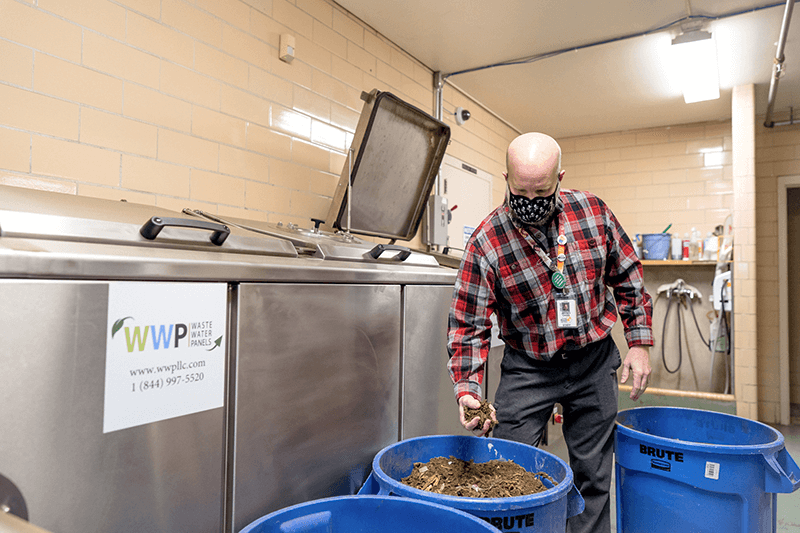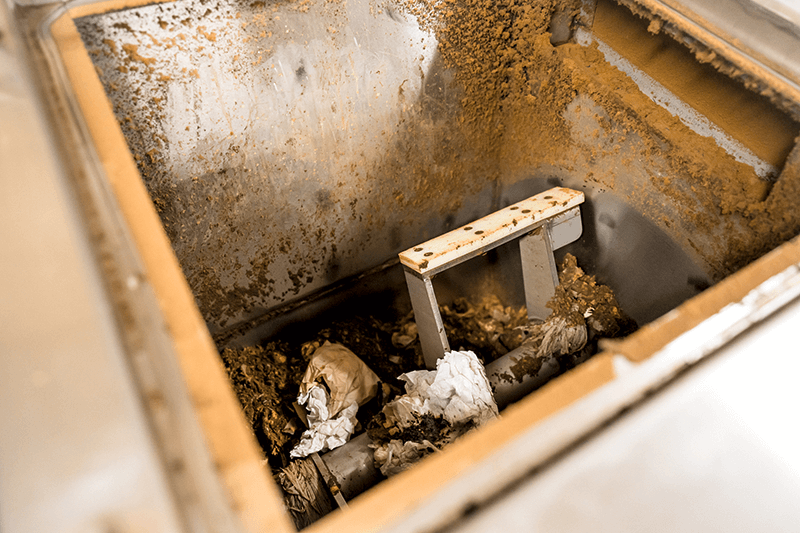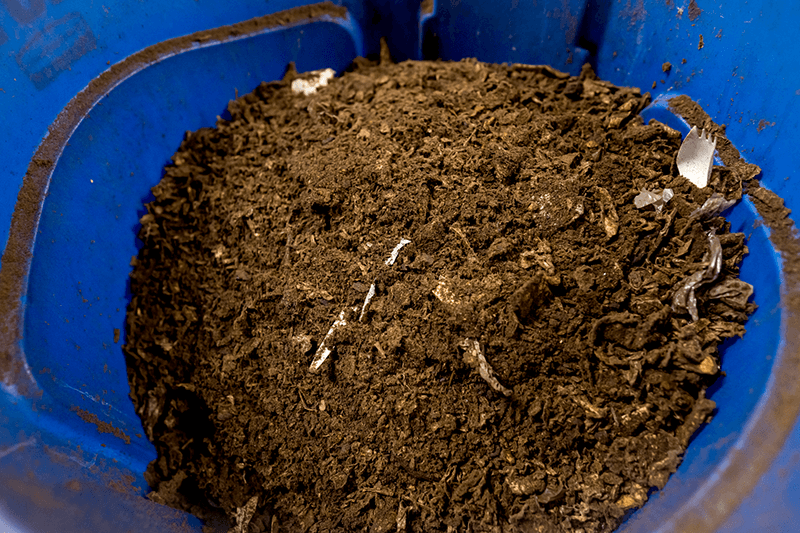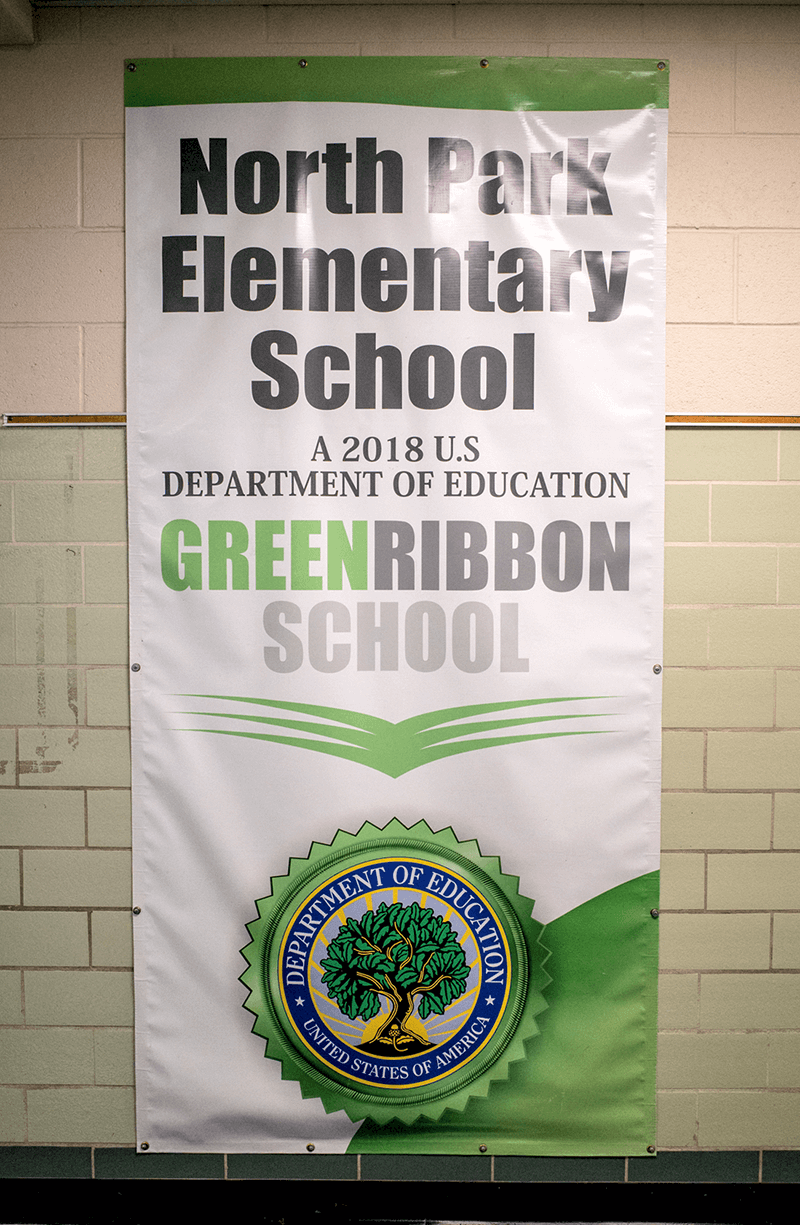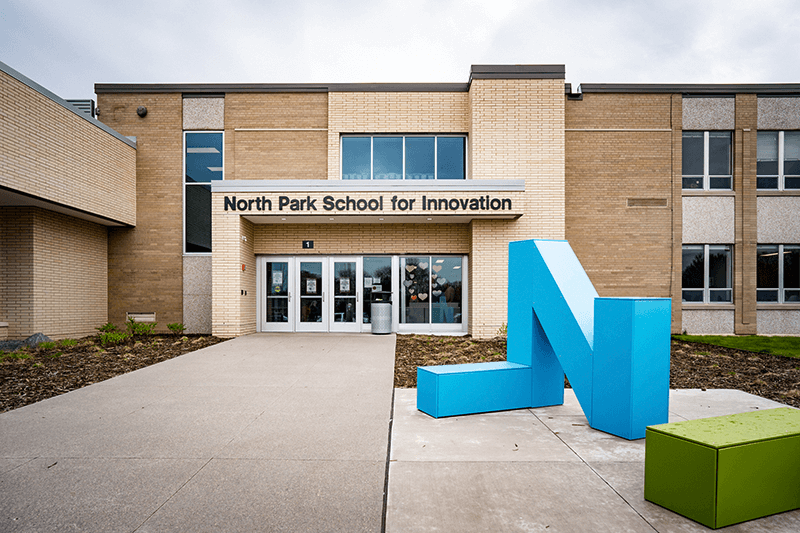How do you become the cleanest school in the country?
At the recently renamed North Park School for Innovation, a District 13 Columbia Heights school located just over the border into Fridley, the latest innovation that might just tip the scales, is a giant food-eater and overnight composter known as the bio-digester.
What is a bio-digester and how did it come to be located behind the cafeteria of this newly remodeled and renovated school?
At North Park, it’s the result of a decades- long process that meant concentrating on at least one energy-saving and intentionally-designed project each year, “with sustainability and creativity at its core,” according to North Park Principal Jeff Cacek.
“Students are learning to be citizens of the world,” said Cacek, in a school that, over the years has added rows of solar panels to its roof, installed rain gardens and created an edible schoolyard. Every effort has provided a new learning experience for students, according to Cacek.
About 20 years ago, students and staff began their “green journey” with all-school paper recycling in classrooms and offices and a cafeteria-composting program that included food scraps and paper towels from the restrooms. And next year they’ll further reduce their carbon footprint by eliminating individual milk cartons and switching from compostable flatware to reusable metal flatware, provided by Anoka County.
And what about the bio-digester?
“It started with a chance meeting,” according to Cacek. At an event about two years ago, then School Superintendent Kathy Kelly happened to be seated next to the Chief Operating Officer of Waste to Energy Canada (WTEC), a leader in the field of turning organic waste into energy. One thing led to another and WTEC sent a representative to tour one of the school buildings as a potential site for a pilot program.
The result? WTEC presented a massive gift, valued at over $269,000, that included a bio-digester and a biomass boiler, to be housed at North Park School, “who has been leading the way for Columbia Heights Public Schools in sustainability programs and was named a U.S. Department of Education Green Ribbon School in 2018,” according to the district.
So far, the bio-digester has been installed and is up and running, turning food waste and other compostable material into garden-ready compost or a high biofuel in 24 hours.
How does it work? Food waste and compostable materials are emptied into the bio-digester. After processing at a sustained temperature for 24 hours, the resulting compost can be added to garden beds, like those at the district’s Blooming Heights Garden or the garden beds in North Park’s edible schoolyard.
“The question then becomes, do we have enough places to use all this compost?” said Cacek.
The answer is surprisingly simple and yet amazing. When the biomass boiler is installed, the bio-digester’s compost will serve to fuel the boiler and heat the school building.
“As far as we know, we are the first and only school to have the bio-digester, and we will be the first to use it to heat our building,” said Cacek.
And that will make North Park the cleanest, greenest school in the country, “if it’s not already,” said Cacek.
Below: North Park Principal Jeff Cacek inspects some of the compost coming out of the bio-digester where food wastes and other compostable materials are processed for 24 hours at just the right temperature. Below middle and right, closeups of partly finished and finished materials. Eventually a biomass boiler will be installed and the compost will be used to fuel it. The school’s front entrance and one of the designations the school received upon decades of environmental commitment. (Photos by Mike Madison)
